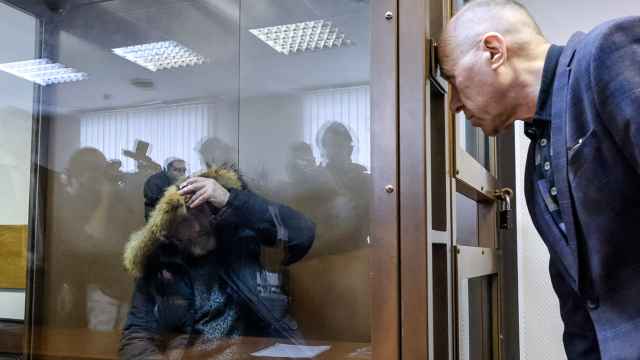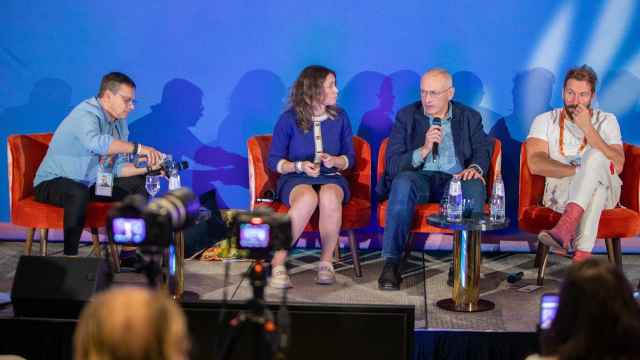NICOSIA, Cyprus — Shareholders of Cyprus' largest bank have elected six Russians to sit on its new, 16-member board of directors, a consequence of the country's bailout agreement with international creditors.
The vote Tuesday puts more foreign nationals on the board of the Bank of Cyprus than ever before.
The fact that they are all Russians — one of whom, Vladimir Strzhalkovsky, was elected by other board members as vice chairman — reflects the large stake that they had in Cyprus' banking system.
Russians kept billions in Cypriot bank accounts because of benefits such as low taxes and high interest rates, helping to swell the size of the financial sector at its peak to eight times the country's entire economy.
The Russian board members include Igor Lozhevsky, who has worked at both the World Bank and Germany's Deutsche Bank. The board also elected Cypriot Christis Hassapis as its chairman.
Some 3,500 shareholders attended the bank's annual general meeting either in person or by proxy, representing 53.6 percent of the total share capital.
The meeting was a tumultuous affair as several old shareholders, who saw almost all of the value of their shares slashed under the bailout's conditions, loudly opposed the proceedings because they had not received the bank's post-bailout financial results. Some stormed out of the meeting, saying they were being asked to legitimize "illegal" decisions made without their consent.
According to the terms of Cyprus' rescue deal that it agreed in March, depositors with more than 100,000 euros in the Bank of Cyprus and the second-largest lender Laiki were forced to take huge losses on their savings in order for the country to qualify for a 10 billion euro ($13.2 billion) loan.
Money from the deposit grab — or "haircut" — was used to replenish Bank of Cyprus' capital buffers, while Laiki ceased to operate and large chunks of it were absorbed by the larger lender.
The haircut sapped trust in Cypriot banks, prompting authorities to impose restrictions on money transfers and withdrawals to prevent a run. Many restrictions have since been relaxed, but officials say it may take many months before they are fully lifted.
Some 47.5 percent of uninsured deposits in the Bank of Cyprus were converted into shares, turning large Russian depositors into big shareholders requiring representation on the board.
"Our goal is to fully restore faith in the banking system and to return to a trajectory of growth," the new board said in a statement.
A Message from The Moscow Times:
Dear readers,
We are facing unprecedented challenges. Russia's Prosecutor General's Office has designated The Moscow Times as an "undesirable" organization, criminalizing our work and putting our staff at risk of prosecution. This follows our earlier unjust labeling as a "foreign agent."
These actions are direct attempts to silence independent journalism in Russia. The authorities claim our work "discredits the decisions of the Russian leadership." We see things differently: we strive to provide accurate, unbiased reporting on Russia.
We, the journalists of The Moscow Times, refuse to be silenced. But to continue our work, we need your help.
Your support, no matter how small, makes a world of difference. If you can, please support us monthly starting from just $2. It's quick to set up, and every contribution makes a significant impact.
By supporting The Moscow Times, you're defending open, independent journalism in the face of repression. Thank you for standing with us.
Remind me later.





